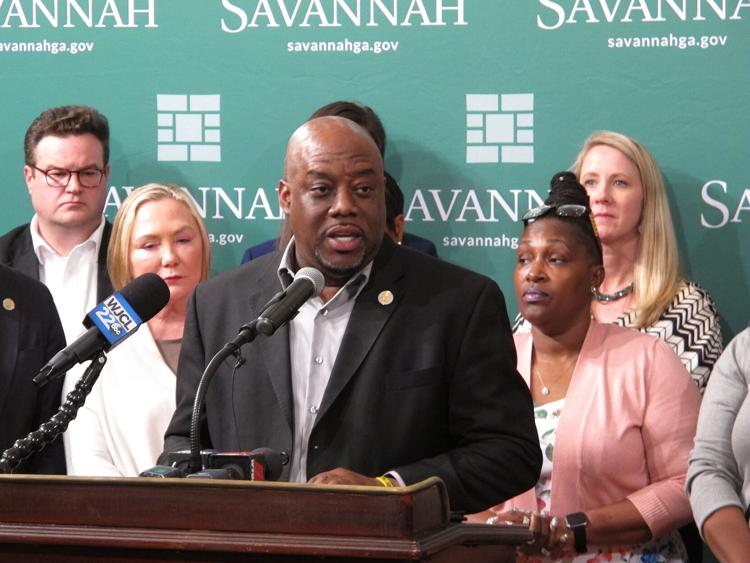Georgia local government official: CARES Act funding won’t stop ‘economic ruin’

Savannah, Ga., Mayor Van Johnson
(The Center Square) – Most Georgia counties have received the first portion of federal aid meant to help with COVID-19 relief efforts. Local leaders, however, say the funds are not enough to address ongoing budget issues.
Metro counties in Georgia received about $600 million of federal funding provided through the Coronavirus Aid, Relief and Economic Security (CARES) Act directly from the U.S Department of Treasury. Smaller counties recently started to secure their portion of $1.23 billion set aside by the state for them.
The funds can be used only to cover COVID-19-related expenses, but local government officials are concerned about filling revenue gaps caused by the COVID-19 economic shutdown.
“Cities, towns and villages have been the backbone of the American economy, and our hometowns are at risk. We cannot keep fighting Congress and the administration on much-needed local aid when we are too busy fighting economic ruin,” Savannah Mayor Van Johnson said in a statement.
The National League of Cities (NLC) wants the federal government to change the guidelines for CARES Act funding and to provide more direct aid in an additional stimulus package.
The CARES Act, which was signed into law by President Donald Trump in March, earmarked $4.1 billion for Georgia for direct support for the state and local governments.
Federal guidance called for 45 percent of the aid to set aside for counties with more than 500,000 residents. Atlanta and Cobb, DeKalb, Fulton and Gwinnett counties received their portion of federal funding directly from the federal government, according to the U.S. Treasury.
Kemp, in late June, said smaller counties would receive their portion of the aid in three rounds.
A majority of counties had received phase one (30 percent) of the funding as of Tuesday, said Schuyler Harding, spokeswoman for the Association of County Commissioners of Georgia (ACCG).
Local governments have until Sept. 1 to use their tranche of the money. The remainder of the funds would be allocated on a reimbursement basis, Kemp said.
Harding said some of the counties have had to bail out local businesses and nonprofit organizations, so some of the funds will not be eligible for reimbursement.
“The allocation of funds thus far in Georgia, particularly in the four metro counties, indicates that they too have not incurred direct expenses at the level of funds appropriated to them,” Harding said. “At this time, it is too early in our state’s process for us to know how the counties with populations less than 500,000 are allocating the funding they are eligible for or have received in phase one.”
One of the most significant expenses has been overtime for public safety, public health, health care and human services employees and other workers involved in the pandemic, said Todd Edwards, deputy legislative director for ACCG.
Clarence Anthony, executive director of NLC, said the direct CARES Act funding “has already been obligated, and small cities and rural areas have been left out entirely.”
“In fact, 70 percent of CARES Act funds allocated to state and local governments has already been obligated through the end of the year, with only 10 percent going toward aid for local governments,” Anthony said.

